I’ve been dubious of EcoHealth Alliance for a while, and I’ll get to why in a minute. Let’s start off with the Pilanesberg Resolution of 2001. Read the below, and tell me you don’t see the parallels with the Manhattan Principles.
Then note who co-authored it. Steve Osofsky and William B Karesh.
Now, let’s compare to the Manhattan Principles (2004), aka ‘One Health’, and again note who co-authored it. Steve Osofsky and William B Karesh.
I know, I know. You won’t read those two walls of text, right? Well, then let’s ask ChatGPT, since it’s been so agreeable as of late. But before we do, let’s return to 1997 and Hong Kong, and the incredibly fake ‘pandemic potential’ titled H5N1.
In the event you can’t be bothered reading that either, here’s a quick summary in terms of outcomes - H5N1 resulted in livestock surveillance, poultry vaccination, and the odd dash of culling. Which sounds rather a lot like One Health to me.
But what does ChatGPT think?
The first of those co-authors, Steve Osofsky, we saw him appear in the Lancet/Rockefeller production, Planetary Health in 2015.
A topic I previously covered over here, and which ultimately leads to 1969 and Planetary Management -
And William B Karesh really shouldn’t need an introduction, but here he is anyway.
He’s further a member of the Council on Foreign Relations, co-chair of an IUCN SSC group, and is an expert on infectious diseases, wildlife conservation and the environment.
Pretty impressive resume, really. Oh yeah, and there’s that Bipartisan Commission on Biodefense.
I struggled for a while to place EcoHealth Alliance. Spent a fair amount of time attempting to ‘place’ them in the hierarchy. Sure, I heard all the same stories as everyone else, about primarily gain of function. But you know what I also heard in the regard of GoF?
That the narrative never really shifted. It never really evolved. It would arrive now and then in the media, make some noise, only to disappear again. Nothing ever came out of it, really, and there’s only so many times you can feign outrage.
In some ways it started to feel as though an ulterior motive was at play. Because as the media would let everyone know that EcoHealth Alliance were relevant in these discussions, that same media never really detailed what EcoHealth Alliance also were up to, starting with a paper I dug out from 2015; ‘Barriers to, Efforts in, and Optimization of Integrated One Health Surveillance: A Review and Synthesis‘.
I discovered this paper in July of 2023, and it was probably the singular paper which more or less entirely convinced me that there’s more to the EcoHealth Alliance story, primarily because the paper is so unbelievably - frankly unnecessarily - aggressive in phrasing, and not just due to the surveillance aspect.
No, see if you can find it. It’s underlined, it’s not that difficult.
I refer you to item 7 -
'Risk assessments should compare warfare to options for outreach... and a strong world court coupled with a multi-national police force to remove despots, quell conflicts, and enable reconciliations.'
Compare warfare to options for outreach? Remove despots?
Wait, what now?
Let’s return to the journal front page, which you can find here; editor is Peter Daszak, and ‘The journal is a central platform for fulfilling the mission of EcoHealth Alliance to strive for sustainable health of people, domestic animals, wildlife, and ecosystems by promoting discovery, understanding, and transdisciplinarity‘
In fact, there are so many things to bring up, but let’s just focus on a single one -
‘ECOSYSTEM APPROACHES TO HEALTH‘
Sigh.
ChatGPT, what do you reckon?
The Ecosystem Approach is a topic I’ve covered a fair bit, and ChatGPT - in spite all of its progressive restrictions - does appear to agree.
It’s a governance system, where democracy has been tossed aside, and replaced with some akin to feudalism. You will own nothing, and all.
And it’s another piece of the puzzle, really. As said, the Ecosystem Approach describes the political system they seek to push through (feudalism), controlled by the stakeholders.
And EcoHealth Alliance is the conduit between the Ecosystem Approach in general and humanity, including public health. Because as One Health clarified, humans are the cause behind ecosystems being out of balance. We are the problem. In fact, WHO stated the exact same thing in their recent Pandemic Treaty update.
One Health then serves as a conduit for addressing the issue of exponential population growth, at one time legitimising global+public health surveillance for the sakes of zoonotic disease emergence, but also helpfully suggesting applying culling to ‘wildlife species, more broadly’ in Manhattan Principle 8, and hinting at pharmaceuticals / vaccines being involved in that equation in Principle 9. Oh yeah, and then there’s the talk about full integration of biodiversity perspectives in principle 6, and in the preamble -
‘A broader understanding of health and disease demands a unity of approach achievable only through a consilience of human, domestic animal and wildlife health - One Health‘
It’s all integrated. It must be. It’s critical.
-
You know who else connects directly to EcoHealth Alliance? Andrew G Huff - Who is definitely not telling you the full story either.
He further worked with William B Karesh on this paper - ‘Global biosurveillance is crucial for the identification and prevention of emerging and re-emerging infectious diseases,‘
And going back even further, in 2006, Mark Smolinski (NTI, CORDS) joined Google as the director of the Predict and Prevent initiative. Which was about One Health.
And who were partners on that project?
Metabiota, WCS, Smithsonian Institute, FHI 360, and… EcoHealth Alliance.
And as for IPBES, who blocked me only the other day... Well, they had a workshop on biodiversity and pandemics. Peter Daszak was chair.
We also have the proceedings from the 2017 Disaster Risk Reduction, where Karesh was talking about predicting and preventing pandemics in a talk co-hosted with Cristina Romanelli, of the Convention on Biological Diversity.
Or how about the report on the ‘IUCN SSC Post-2020 Biodiversity Targets Task Force‘ to which EcoHealth Alliance contributed?
Oh wait, IUCN SSC… Karesh was mentioned above in this regard.
Regardless, I covered that over here. It’s the enabler of the Natural Asset Company through target 19, and also tie into global surveillance.
Then we have the Nature4Health consortium promising… whatever.
Convention on Biological Diversity, IUCN, UNEP, and EcoHealth Alliance.
Not forgetting who’s on that steering committee. Oh hi, Karesh.
And finally, the title here is fairly suggestive. Karesh as per usual.
And it’s at this stage I bow out. Though I have much, much more material on the central topic, I don’t really see much point in carrying on, as there’s quite obviously one hell of a lot more to EcoHealth Alliance than that Gain of Function cover story.
But they’ll probably drum that story up again in the media soon enough.
After all, that particular red herring has been very successful so far.




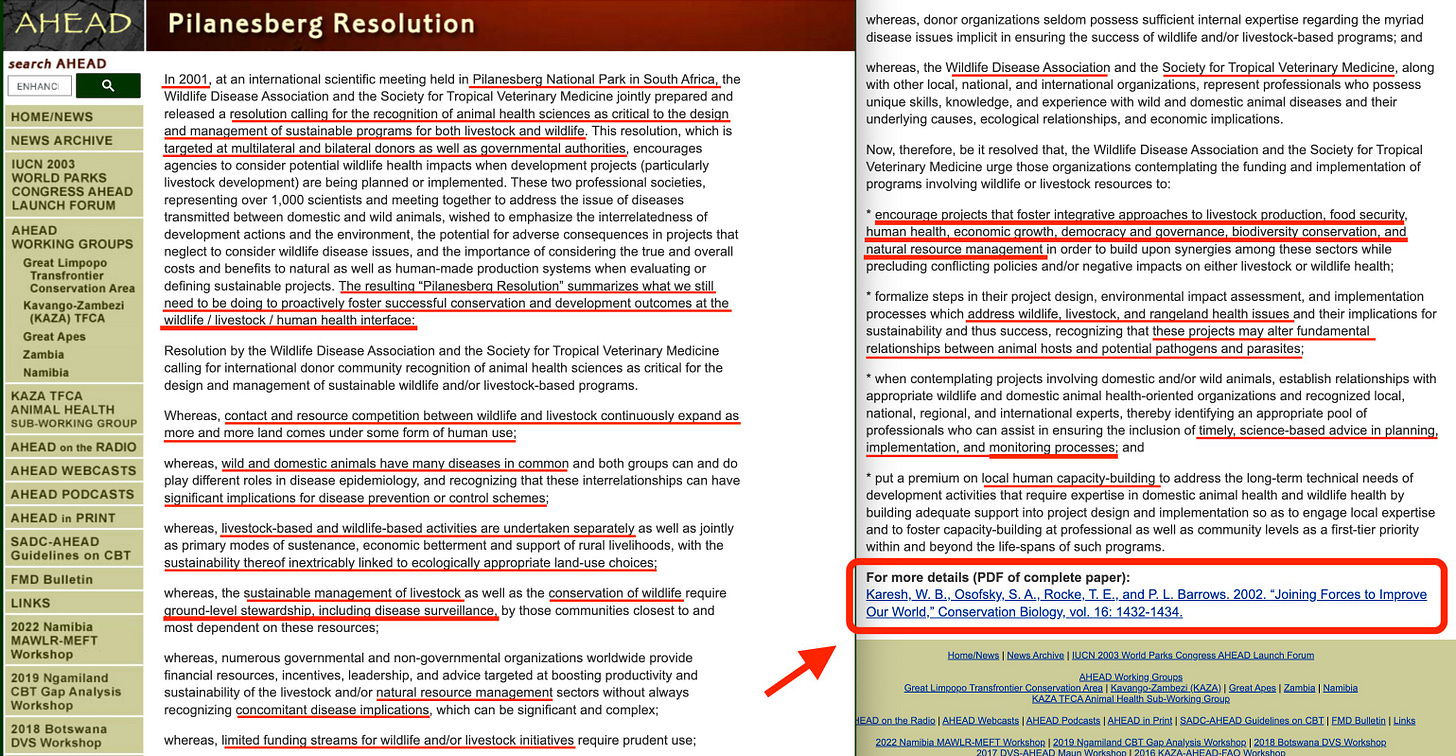
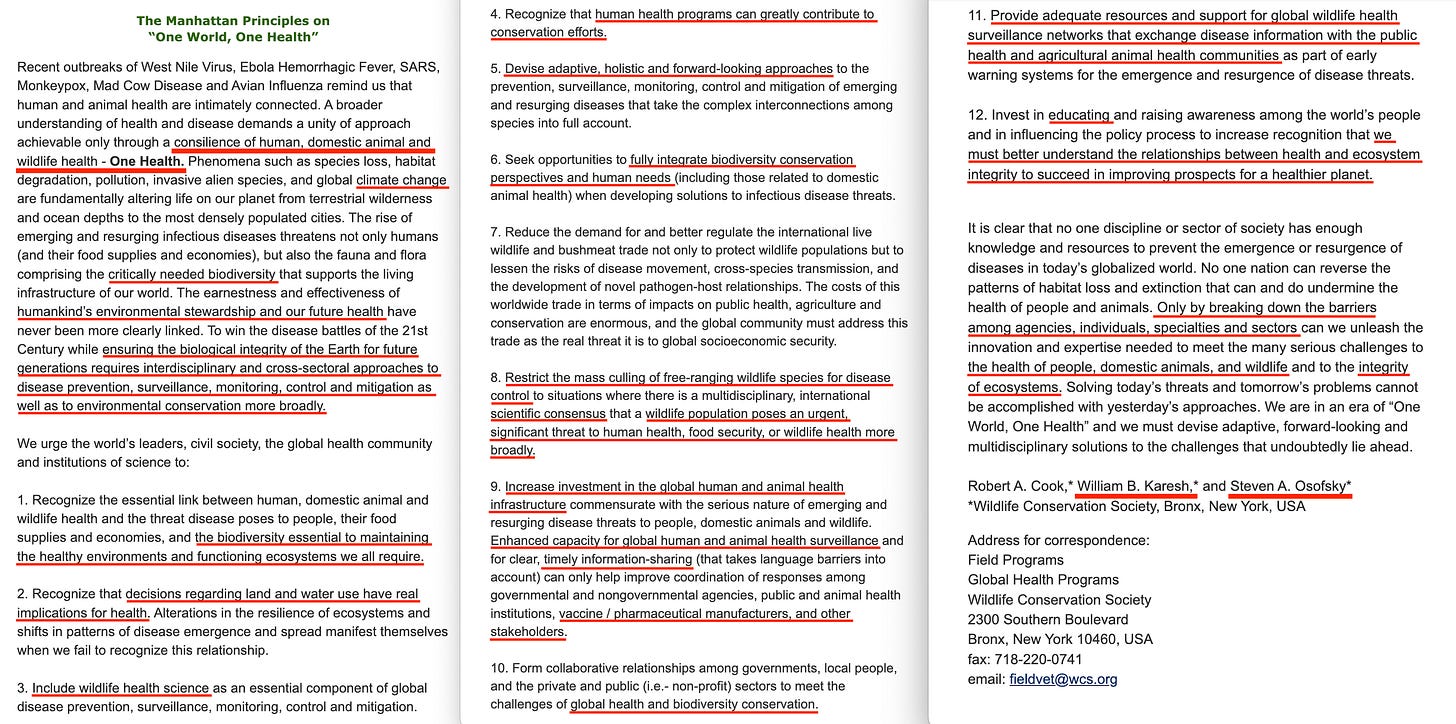

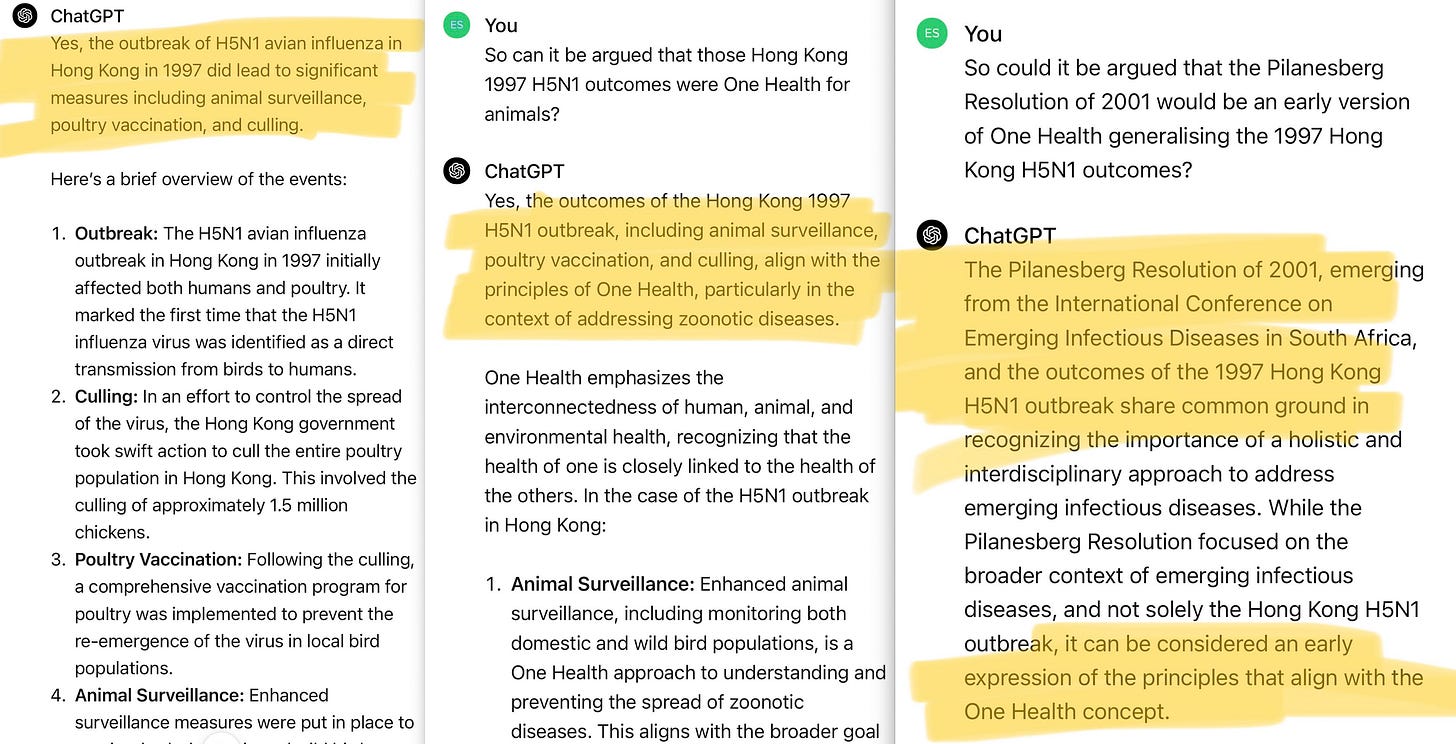
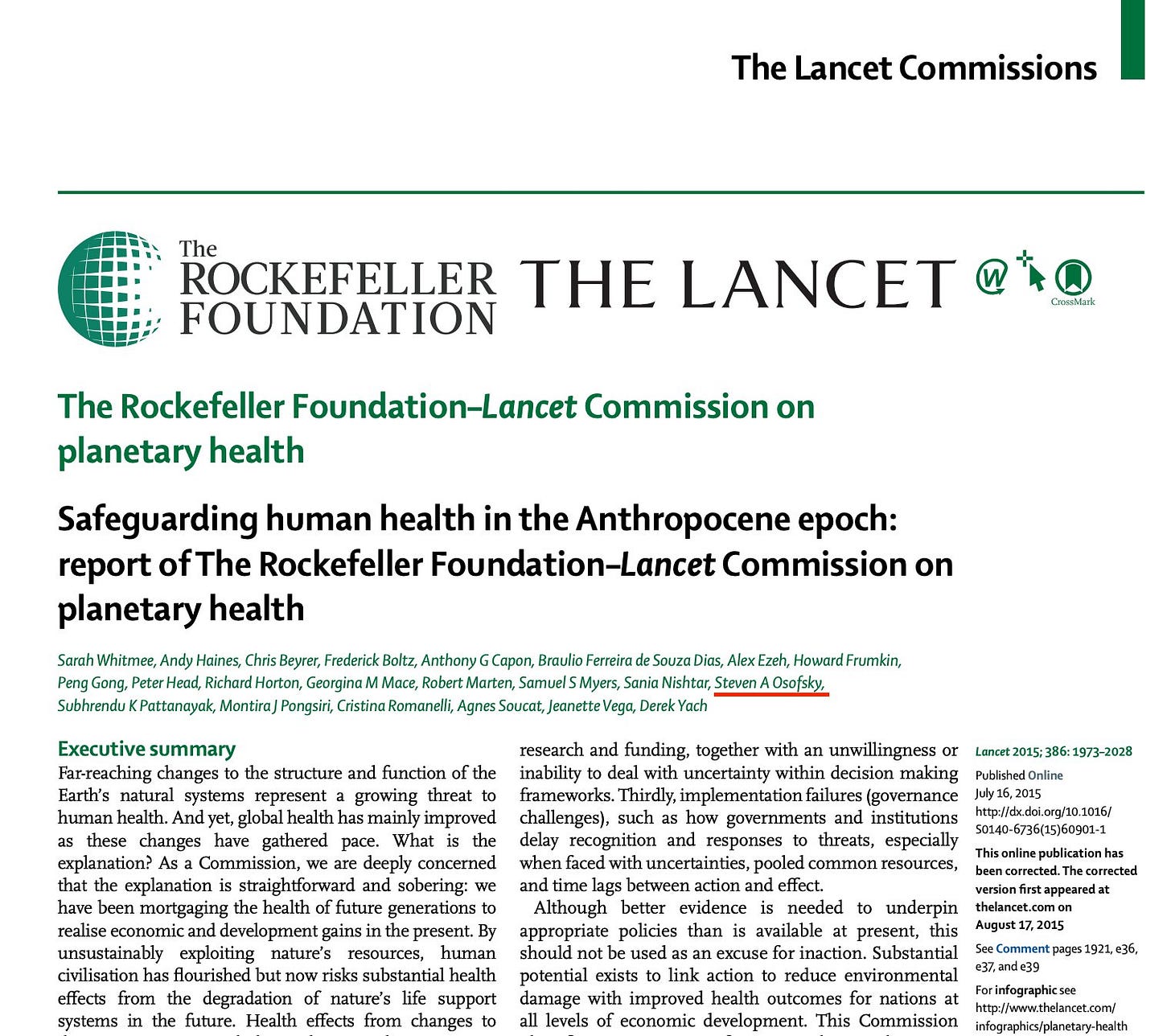
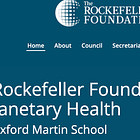






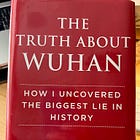



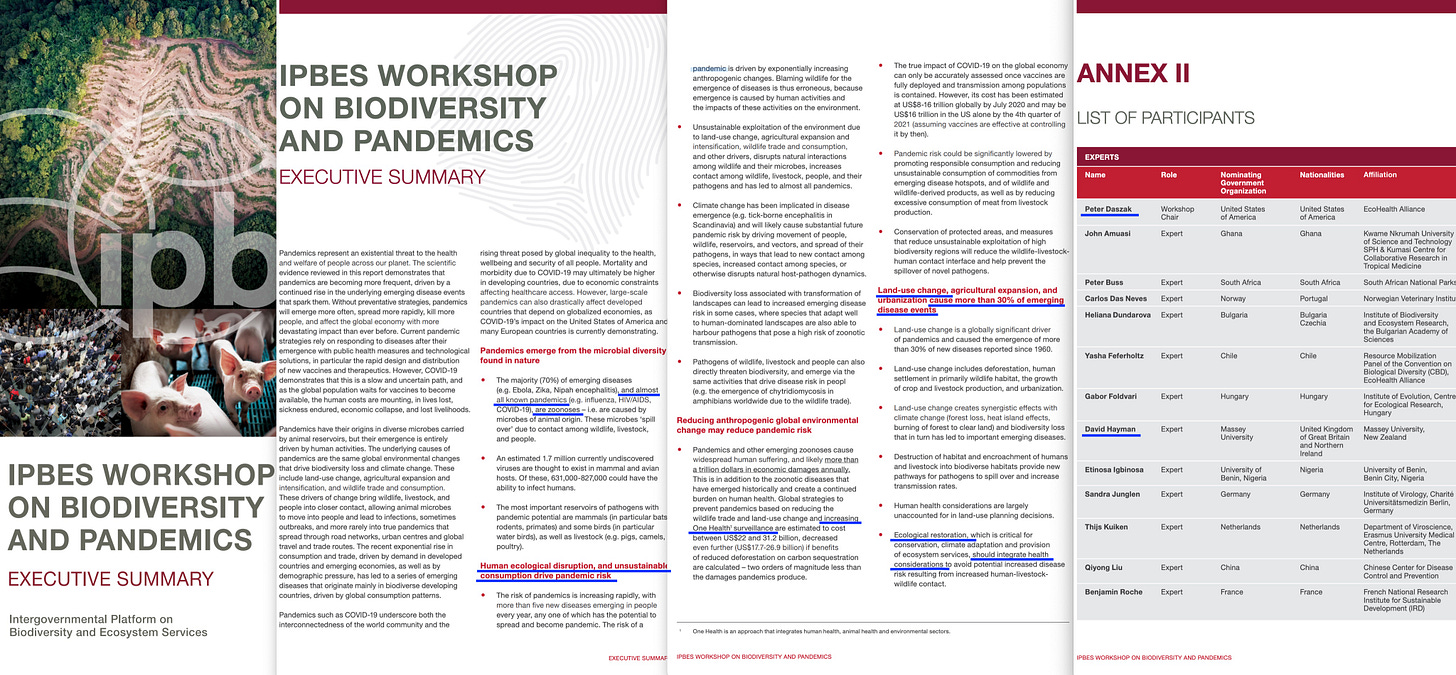


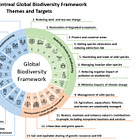
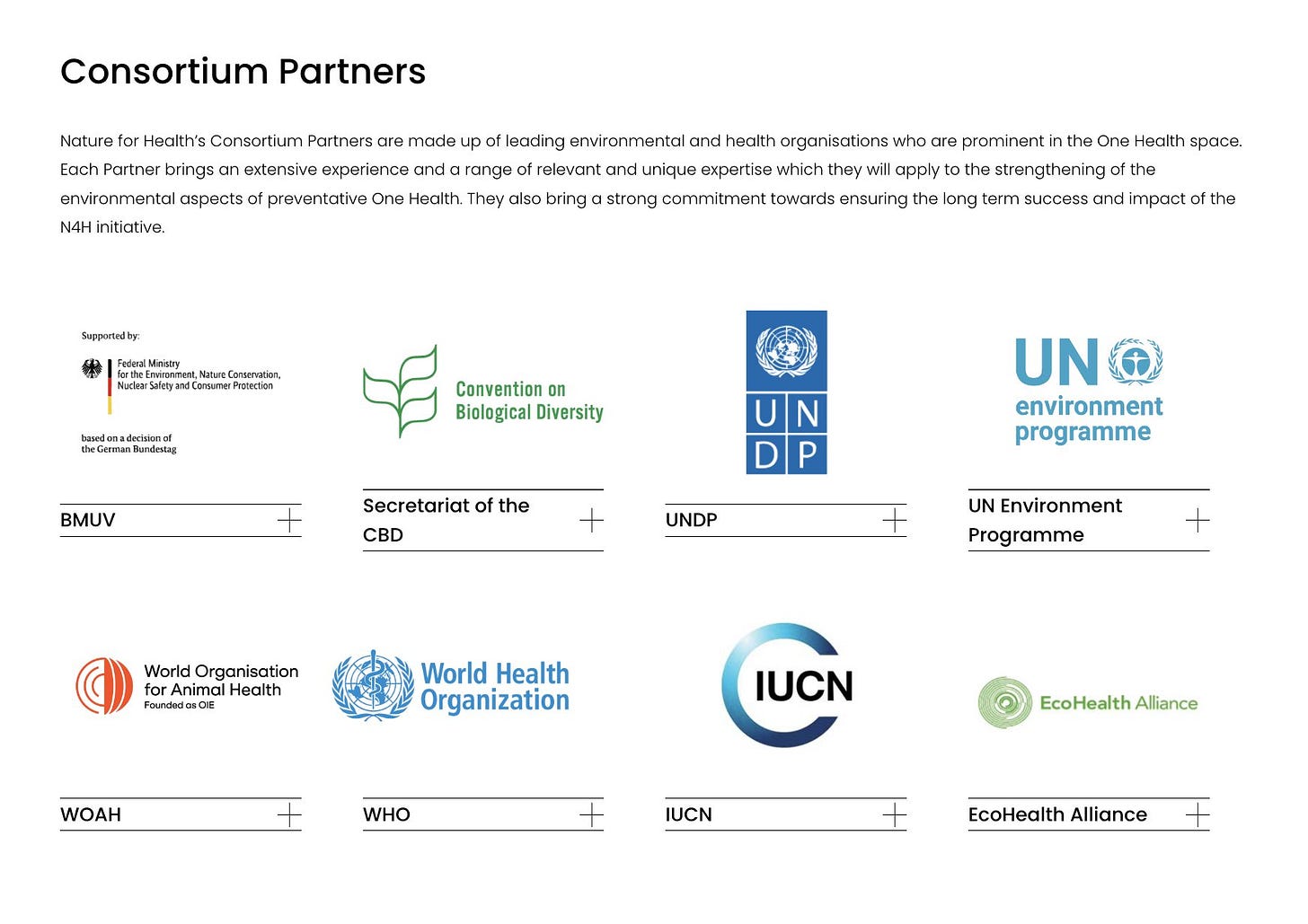


EcoHealth Alliance graph so far:
https://embed.kumu.io/a859459a61e5842c810e3884f19cd438
I worked with Andrew Huff on the DMED data. Or, rather, he piddled around while I worked.
https://roundingtheearth.substack.com/p/jordan-schachtel-digs-into-andrew